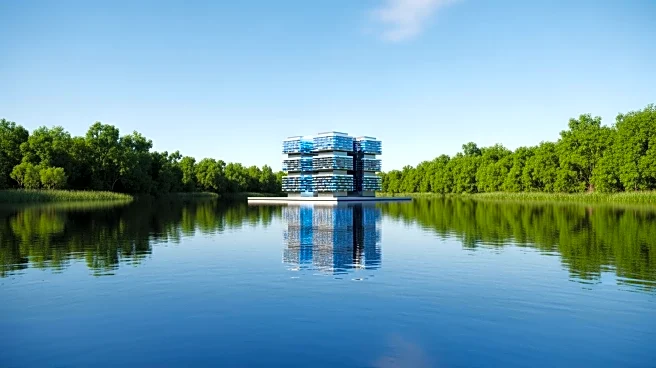What's Happening?
Data centers, known for their high energy and water consumption, are becoming a significant topic of discussion in technology, economic development, and environmental circles. The Great Lakes region, with
its abundant freshwater resources, is seeing a rise in data center operations, including those near Rochester. These server farms are essential for data processing and crypto mining but pose challenges due to their resource-intensive nature. In response, the Great Lakes Commission is seeking to coordinate efforts in managing water and energy resources to mitigate the environmental impact of these facilities.
Why It's Important?
The proliferation of data centers in the Great Lakes region underscores the growing demand for digital infrastructure, driven by the increasing reliance on cloud computing and cryptocurrency. However, the environmental footprint of these centers, particularly their water usage, raises concerns about sustainable resource management. The Great Lakes, a critical freshwater source, could face stress if resource management is not effectively coordinated. This situation highlights the need for balancing technological advancement with environmental stewardship, impacting regional policies and potentially influencing national discussions on sustainable tech development.
What's Next?
The Great Lakes Commission's initiative to manage water and energy resources could lead to new regulations or guidelines for data center operations in the region. Stakeholders, including environmental groups, tech companies, and local governments, may engage in discussions to develop sustainable practices. The outcome could set a precedent for other regions facing similar challenges, influencing broader policy frameworks on the environmental impact of technology infrastructure.
Beyond the Headlines
The situation presents an opportunity to explore innovative solutions in resource management, such as the development of more efficient cooling technologies or the use of renewable energy sources. It also raises ethical considerations about the prioritization of water resources between industrial use and public consumption, potentially sparking debates on the equitable distribution of natural resources.









